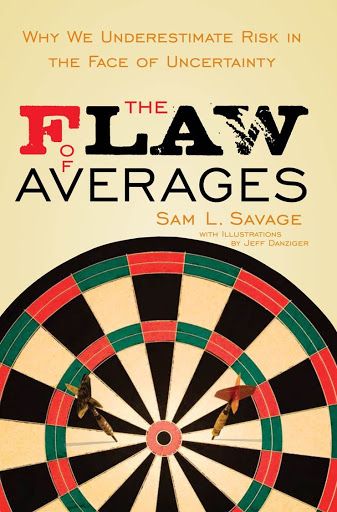Table of contents

In this episode, Taimur gives us a maths lesson. We learn about why it's bad to rely on 'averages' when making plans, and about how we can make better decisions by accounting for uncertainty. Sorry for the poor audio quality — Taimur had some technical difficulties this week.
Some of the highlights from our discussion:
We all make lots of decision in our personal and business – some of those are simple enough to make in our heads but many decisions are too complicated for us to reason through in our heads and these tools are often known as models. These can be as simple as working out what each person owes at a dinner to entire software programmes that do millions of calculations. These models are simplified versions of reality that help us think through things.
There is one missing ingredient from our models and therefore our decision making – uncertainty. If you are about to paint your house, you might use a step ladder and before you go up the ladder, you’ll shake it to see if it’s stable. What you are doing is simulating random forces on the ladder to make sure that it is robust. We want to be able to do a similar thing to our models – we want to be able to shake our model to ascertain what will happen when something unexpected occurs. But accounting for this ‘uncertainty’ is almost always impossible to account for.
One of the key flaws of averages is that our model will be too pessimistic on the worst case scenario and too optimistic on the best-case scenario. This is because it is highly unlikely that every month will result in the worst-case scenario unfolding – it would be like rolling a 1 every single time on a dice. Therefore the overall worst case scenario is even more unlikely.
You cannot rely on the average inputs to lead to the average outcome. Average case scenario of your model will probably be too optimistic. For instance, if you are averaging out the time it takes to complete a project based on the time it takes to complete each component task, the overall average will be higher than the time it takes to complete th slowest task. However, to complete the project you will have to have completed that slow task – hence the average that you worked with will be too optimistic.
As a model gets more complicated, the difference between your estimates and the actual results will get larger.
Links:
- The Flaw of Averages — the book that sparked this discussion, from which we've adapted many of the examples we mentioned.
Leave us a Review
If you enjoy listening to the podcast, we'd love for you to leave us a review on iTunes / Apple Podcasts. Here's a link that works even if you're not on an iPhone :)
Send us an Audio Message
We really want to include more listener comments and questions in our episodes. If you've got any thoughts on this episode, or if you've got a conundrum or question you'd like us to discuss, send an audio file / voice note to hi@notoverthinking.com.
For any non-audio comments, drop us a tweet or DM on Twitter - https://twitter.com/noverthinking

